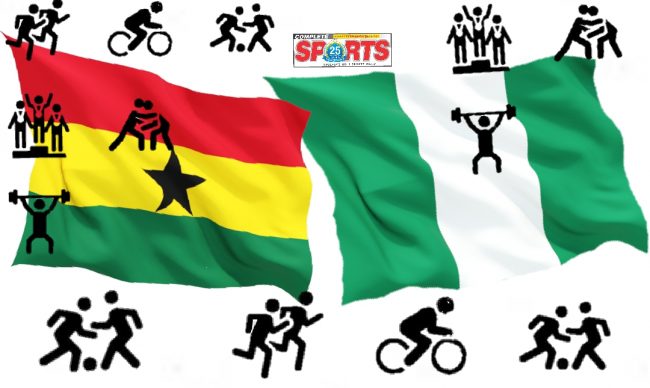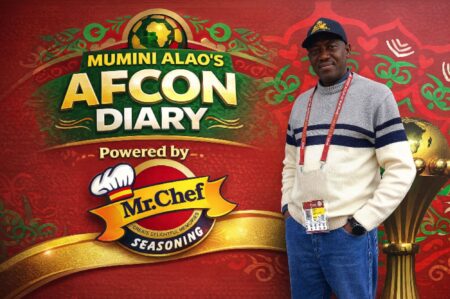If you are not a dreamer like me, feel free to stop reading this now.
This is one of those days that I play games with my mind, let my imagination run wild and dream ‘crazy’ ideas.
I am dreaming of Africa, the new beautiful bride of the most advanced countries of the world because of its rich and abundant natural and human resources.
Africa is the new frontier that holds the key to a new world. I am looking at how African countries are reacting to the rapidly changing global order of things and events; of its past; its ‘wasted’ political leaders; its errors at different times in its history. I am dreaming about a simple, realistic and achievable process of kick-starting something new, that will lead to the world envisioned by the founding political leaders of African countries during the period of their Independence around the 1960s. Those great and visionary leaders were led by Ghana’s Kwame Nkrumah, Tanzania’s Julius Nyerere, Ethiopia’s Hallie Selassie, Nigeria’s Tafawa Balewa and several others, who all dreamt of an African continent that would be united, strong, fertile, productive and very competitive in the global space.
My sports orientation takes over at this point and I start to process the possibility of a new world through the prism of sports.
My mind is creating images of a West Africa region, with its two giants, Ghana and Nigeria, spearheading a serious charge at the global social, political, cultural and economic space.
Also Read – Odegbami: Nigerian Sports In 2030 – Jamaica Shows The Way!
Dr. Nkrumah understood quite clearly the need for a coming together of African countries, of joining forces, of forging alliances, of developing a masterplan for a common cause and front, and of driving the difficult process of evolution that will birth a new Black and African Civilization that will be prosperous, united, strong, and productive and become the epicenter of a new world order.
I am looking and asking myself – How can this still this happen now?
I can see in Ghana and Nigeria of the present times, the compass to the future of the continent. Those two countries have the capacity and the opportunities now to chart that cause. Their relationship has always been extra special. They must build the future of Africa on that foundation.
Ghana may actually be the closest ally to Nigeria in terms of social, political, economic, cultural and sport relations. Their story is one of deep friendship and acute but healthy rivalry. They have never harnessed their full capacities and deep relationship to drive big causes and harvest big economic and cultural dividends. Probably, the countries do not appreciate the enormity and strength of their united front.
I recall my visit to Ghana in 2003 to meet with the then President, John Kufuor. As he welcomed me to his office in the Castle in Accra, his words still ring in my head. He told the delegation that I led there that Ghana and Nigeria were brother nations, and that Nigeria was, probably, the only country on earth that would ask anything of Ghana and could go to sleep without blinking an eyelid confident that the demand would be granted. That was the depth of their friendship.
Looking at that relationship through the prism of sports, what have they used it to achieve for both countries?
The good news is that despite the rivalry and emotions that every sport contest between them generated, neither country had ever allowed the sentiments of competition to destroy the fabric of that friendship. Politics have always played second fiddle in their sports relationship.
So, why allow this powerful relation to diminish to comatose levels today?
Unless there is an international competition that brings them together these days to compete against one another, there is hardly any appetite to nurture their long-standing relationship in sports for mutual benefit.
At around the Independence of both countries (Ghana’s in 1957 and Nigeria’s in 1960) the political leaders had used sport as a very powerful tool to showcase their friendship. Most of Nigeria’s sports programs and competitions at the time were with Ghana. Even at Nigeria’s Independence Celebrations in 1960, Ghana’s Black Stars were the football team invited to play against Nigeria’s Green Eagles.
Ghana’s President Dr. Kwame Nkrumah, the loudest voice in the advocacy for the pursuit of equality and justice for African countries, loved sports with a passion and recognised their power to build bridges across the nations.
Also Read – Odegbami: Message for Nigerian Youths – Gene and Geography!
During his reign, there were regular competitions in cricket, tennis, table tennis, athletics and football between Nigeria and Ghana, including at schools’ level. In 1974, even after the pioneering leaders had all left political power, Nigeria and Ghana still came together to establish a special purpose vehicle for sports development, a most ambitious sports lubricant of a socio-cultural and economic agenda – the Ghana/Nigeria Sports Festival.
Those that saw the impact of the 1973 All-African Games and the impact of the festival on the city of Lagos appreciated the vision that, immediately afterwards, gave birth to the Ghana/Nigeria Sports Festival one year later. Despite all the political upheavals that swept away pioneer political leaders in many parts of the continent in the 1960s, it is that same spirit of the African games that fueled the most ambitious agenda to date, of the Black man’s quest for a new Black Consciousness, respect, civilisation, advancement and power in the world. Africa became quite busy – the ECOWAS games festival was born; the boycott of the Montreal Olympics was orchestrated; the struggle against apartheid in South Africa was intensified with threats of more sports boycotts; Nigeria hosted the greatest assembly of the Black race on earth through FESTAC. All these were evidences of powerful movements growing in Africa driven by sports and the arts.
In the West African sub-region, the original vision of the great pioneering political leaders was of a fully integrated region with a common market, a super highway and rail system running along the coastline from Dakar in the West to Lagos in the East, a common currency in the region, a free trade zone, free movement of people within the region, and so on. In short, the dream was the establishment of a powerful West African region to model a new greater African continent. The two most powerful countries in that sub-region, Ghana and Nigeria, were to drive the process and, so, they built a very special relationship, using sports as one of the glues and lubricant.
In 1974, both countries took the giant decision to expand the scope of their sports relationship and created an annual multi-sports fiesta called the Ghana/Nigeria Sports Festival. It generated tremendous interest and excitement in both countries with very high expectations about the prospects of the future.
The West as usual wanted to halt this momentum. The world is not designed so that Africa would develop and fulfil its full potentials. Subtly all the progressive initiatives were scuttled by political leaders that had no appreciation of sports, education, culture and the arts as powerful tools of national development. They simply threw a spanner into the works they inherited.
FESTAC ‘died’ after the Lagos event in 1977. ECOWAS Games became a shadow of itself until it also ‘died’. The All-Africa Games have been watered down to a social jamboree impacting little or nothing. Administrators bearing the seeds of the original vison of sports development were removed from office and replaced by politicians that understood little about that field.
The ambitious Ghana/Nigeria Sports Festival suffered. The festival was a fantastic feast of the best athletes from both countries competing and improving mutual standards. For the 10 days that the 1974 games lasted the city of Lagos was on social ‘fire’, almost a replica of the 2nd All African Games that held one year earlier in the same city. The Nigerian government spared no effort to make the games memorable and beneficial to sport and society.
The second edition took place in Ghana in 1975. It was also a great sporting fiesta. True, there were a few emotional outbursts that took place by irate football fans of the national teams during the games, but they were not enough to have permanently halt what was designed as an integration tool for the people of both countries. That festival was to be a model in the region designed to achieve the goals of a proper sub-regional cultural and economic integration.
It has been 46 years since the festival was halted. The world is a totally different place now. Both countries have grown in stature, knowledge and in experience.
It is time for them to wake up from the stupor of the past and re-set the development buttons for advancement in West Africa through sports.
It is time to revive the Ghana/Nigeria Sports Festival as the first step along the journey to a new kind of relationship between the two countries as they drive the vehicle of a new world order for Africa and the Black race.
Let those that can dream big join me.





